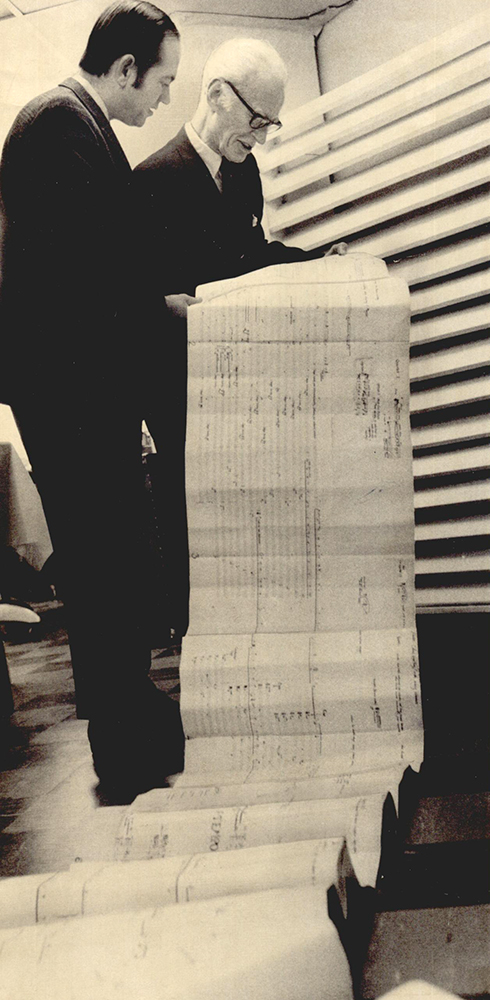The Encyclopedia of Oklahoma History and Culture
LUKE, RAY EDWARD (1928–2010).
Composer, conductor, and teacher Ray Luke entered the world on May 30, 1928, in Fort Worth. He grew up in Texas and attended Texas Christian University, receiving bachelor's and master's degrees in music in 1949 and 1950. After teaching at East Texas State College, he attended the University of Rochester's Eastman School of Music (New York), receiving the Ph.D. in 1960.
Luke came to Oklahoma in 1962 as professor and conductor of the Oklahoma City University (OCU) orchestra and concert band. He also served as associate conductor and then music director/conductor of the Oklahoma City Symphony Orchestra (1968–74). His introduction to Oklahoma, however, came before his arrival, as Guy Fraser Harrison, former instructor at Eastman and director of the Oklahoma City Symphony Orchestra from 1950 to 1972, premiered Luke's work in 1960.
Ray Luke is nationally significant as a composer of contemporary classical music. The hallmark of his highly original work is a distinctive and unusual combination of techniques and styles. He composed prolifically, encompassing orchestral music and chamber pieces as well as opera and ballet. His works include Dialogues for Organ and Percussion, Sonics and Metrics for Concert Band, Plaints and Dirges for Chorus and Orchestra, Prelude and March, and the ballet Tapestry. From 1960 through 1973 the Oklahoma City Symphony premiered seventeen of Luke's works, including Piano Concerto and Compressions for Orchestra. The Tulsa Philharmonic commissioned and premiered Third Suite for Orchestra in 1989, and OCU commissioned Cantata Concertante in 1991. In 1995 OCU premiered two of Luke's one-act operas, Drowne's Wooden Image and Mrs. Bullfrog, both based on stories by Nathaniel Hawthorne.
Ray Luke's awards are legion. The opera Medea earned him the 1979 New England Conservatory Opera Competition Award. The composer's other awards include the 1969 Grand Prix Gold Medal in the International Competition for Composition, awarded by Queen Elizabeth of Belgium for Concerto for Piano and Orchestra. He received Oklahoma's 1979 Governor's Arts Award, and from the 1960s through the 1990s Luke garnered annual awards from the American Society of Composers, Authors, and Publishers (ASCAP) for his contributions to serious music. Retiring in 1997, Ray Luke resided in Oklahoma City until the time of his death on May 15, 2010. His complete works and selected recordings are housed in the Archives and Special Collections of the Dulaney-Browne Library at Oklahoma City University, Oklahoma City, Oklahoma.
See Also
ROY ELLSWORTH HARRIS, GUY FRASER HARRISON, MICHAEL HENNAGIN, OKLAHOMA SYMPHONY ORCHESTRA, TULSA PHILHARMONIC ORCHESTRA
Bibliography
"Composers," Vertical File, Oklahoma Collection, Max Chambers Library, University of Central Oklahoma, Edmond.
International Who's Who in Music and Musicians Directory (Cambridge, England: Melrose Press, Ltd., 1977).
Rick Rogers, "Ray Luke Making His Mark on 20th Century Music," Daily Oklahoman (Oklahoma City), 22 January 1989.
Citation
The following (as per The Chicago Manual of Style, 17th edition) is the preferred citation for articles:
Dianna Everett, “Luke, Ray Edward,” The Encyclopedia of Oklahoma History and Culture, https://www.okhistory.org/publications/enc/entry?entry=LU004.
Published January 15, 2010
© Oklahoma Historical Society


